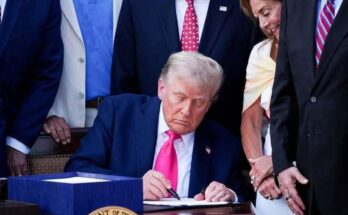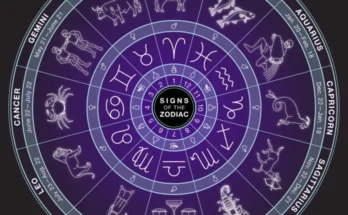
Cast iron skillets are beloved in American kitchens — and for good reason. They’re tough, versatile, and can last for generations with the right care. Whether you’re searing a steak, baking cornbread, or frying up bacon, cast iron gets the job done beautifully.
But as great as these pans are, they’re not perfect for everything.
In fact, cooking certain foods in a cast iron skillet can damage the seasoning, affect the flavor of your meals, or even lead to rust.
If you want your skillet to last — and to keep your food tasting great — here are the top foods and cooking habits to avoid.
1. Tomatoes and Other Acidic Foods
Acidic ingredients like tomatoes, vinegar, and lemon juice are hard on cast iron.
These foods can strip away the pan’s seasoning. Even worse, they might react with the iron itself and give your food a strange, metallic taste.
Cooking a quick tomato dish once in a while is okay in a well-seasoned skillet. But slow-simmered sauces or stews loaded with acid? Best to skip it.
Instead: Use an enameled cast iron or stainless steel pan for recipes with high acidity.
2. Delicate Fish
Fish like tilapia, flounder, and sole are too fragile for cast iron.
The rough surface and high heat can make these tender fillets stick and fall apart. Plus, fish smells tend to linger — and nobody wants their next batch of pancakes tasting like last night’s salmon.
Better option: Try nonstick or stainless pans for cooking seafood, especially if you’re working with fillets that can flake apart easily.
3. Sticky or Sugary Sauces
Sticky glazes, like honey garlic or teriyaki, are tough on cast iron.
The sugar in these sauces can burn and cling to the surface, making a mess and harming your pan’s seasoning. Cleanup becomes a nightmare, and your skillet might lose some of its nonstick quality.
Best choice: Cook sticky sauces in a nonstick pan or wait until your cast iron is very well seasoned.
4. Eggs — Unless You’re a Pro

Yes, some people can make eggs in cast iron. But unless your pan is perfectly seasoned, eggs are likely to stick.
Scraping them off can scratch the surface and leave behind a residue that’s tough to clean.
If you’re still building up the seasoning on your skillet, skip the eggs for now.
Try instead: Use a nonstick skillet for scrambled or sunny-side-up eggs. Once your cast iron is well seasoned, you can experiment.
5. Strongly Flavored Foods (Like Garlic and Curry)
Cast iron absorbs flavors and odors — especially if it hasn’t been seasoned over years of use.
If you cook a garlicky stir-fry or a spicy curry, don’t be surprised if your next dish has a little “extra flavor” from the last one.
And while that might not be a problem for savory meals, it’s a big issue if you want to bake something sweet in the same pan.
What to do: Either deep-clean your skillet after strong meals or keep one pan for sweets and another for savory cooking.
6. Desserts — Right After Savory Meals
Cast iron is fantastic for baking. Cobblers, brownies, skillet cookies — they all turn out great.
But if you just fried onions or bacon in your skillet and then jump into dessert baking, don’t be surprised if your chocolate cake tastes a little… smoky.
That’s because cast iron holds on to flavor.
Solution: Clean your pan thoroughly first. Better yet, keep one cast iron pan just for desserts if you bake often.
7. Boiling or Steaming
Want to boil pasta in your cast iron skillet? Don’t do it.
Water breaks down the seasoning and makes your skillet more prone to rust. The longer it stays wet, the worse it gets.
Cast iron isn’t designed for high-moisture cooking like steaming or boiling.
Use instead: A stainless steel or enameled pot for boiling tasks.
8. Storing Food in the Skillet
It might be tempting to cook dinner and pop the whole skillet into the fridge.
Don’t.
Leaving food in cast iron — especially if it’s moist or acidic — can break down the seasoning. It can even cause rust if left too long.
And it’s not just bad for your pan — it can also make your leftovers taste off.
What to do: Transfer your food to a storage container once it cools down. Then clean and dry the skillet properly.
9. Cold Food on a Hot Pan (or Vice Versa)
Never pour cold water into a hot cast iron skillet. It can crack the pan.
Sudden temperature changes cause thermal shock, which can warp or even split your beloved skillet.
Instead: Let your pan cool naturally before rinsing or cleaning. And always preheat your skillet slowly to avoid sudden heat spikes.
Quick Tips to Keep Your Cast Iron in Top Shape:
- Always dry the skillet completely after washing.
- Rub in a thin layer of oil after each use.
- Avoid soap unless necessary — and even then, use mild soap only.
- Store in a dry place to prevent rust.
Cast iron skillets are powerful tools in the kitchen — if you know how to use them right.
Avoiding a few common mistakes can make the difference between a skillet that lasts a lifetime and one that ends up rusted, sticky, and frustrating.
So remember: stick to cast iron-friendly foods, treat your pan with care, and it’ll reward you with delicious meals for years (or even decades) to come.


